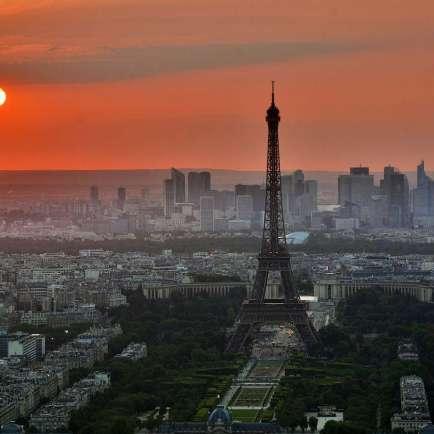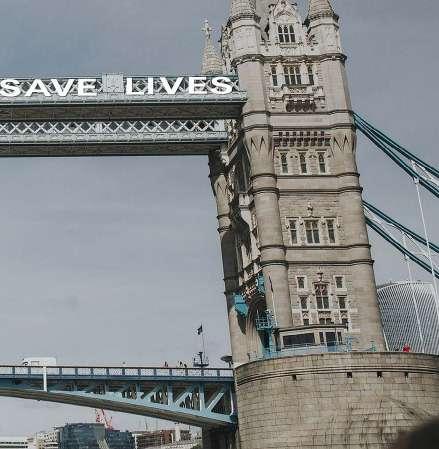
4 minute read
Coronavirus is Changing the Environment
Coronavirus

Advertisement


The coronavirus is overturning everything from aviation to the economy — and it's also having a big impact on the environment.
Some of those are positive — a big drop in CO2 emissions as factories shutter and the economy sputters — while others are negative — growing piles of possibly infected waste like tissues and old face masks.
Here are five ways coronavirus is already having an effect on the environment:
Improvements in air quality
A drop in air pollution was first observed by NASA in China’s Hubei province, where the coronavirus outbreak began in December. The Chinese government on January 23 put Wuhan and other cities on lockdown to contain the virus, leading to a standstill for normal life.
Greenhouse gas
emissions 2.
Slowing economic activity also drives down emissions — if only temporarily. As countries order the closedown of schools, shops and factories, emissions are expected to fall.
The last time carbon emissions fell was during the economic crisis in 2008-2009. But as the economy picked up, so did demand for coal and other fossil fuels — especially in China, the world’s largest emitter.

A study by specialist outlet Carbon Brief found that in China, carbon dioxide emissions have fallen by around 25 percent.
Another factor that could dampen emissions growth is lower oil demand.
The International Energy Agency said Monday that global oil demand is expected to decline this year “as the impact of the new coronavirus spreads around the world, constricting travel and broader economic activity.”
The pandemic affects energy markets more broadly, but oil markets are most severely hit by “dealing a heavy blow to demand for transport fuels,” especially in China, the world’s largest energy consumer, said IEA Executive Director Fatih Birol.
“While the repercussions of the virus are spreading to other parts of the world, what happens in China will have major implications for global energy and oil markets.”
Europe — where industrial emissions have largely stagnated but transport emissions have gone up in recent years — might also experience a dip in emissions as more governments order lockdowns.

Coronavirus is set to leave a vast imprint in Europe and that includes on its environment.
is changing the Coronavirus environment


Mountains of waste
Coffee chain Starbucks decided to stop accepting reusable cups from its customers — only serving drinks in disposable single-use cups that are not yet recyclable in a bid to prevent the spread of the virus. There have also been warnings to err toward eating prepackaged foods, for example at work functions — despite an effort by the European Food Safety Authority to reassure people that, so far, there is “no evidence that food is a likely source or route of transmission of the virus.”Meanwhile, China is drowning under medical waste produced by hospitals including face masks and single-use tissues. In the city of Wuhan, the volume of medical waste is reported to have quadrupled to more than 200 tons a day. Single3.
use medical items that have been in contact with infected patients must be burned to prevent further contamination that could occur during recycling.
More room on the metro
Madrid’s metro operator said ridership fell 35.8 percent on Wednesday compared to the week before. The Belgian government also advised people to avoid peak-hour travel, although Brussels’ STIB said it doesn’t yet have data available on any drop in riders. A surge in working from home may lead to changes in people’s long-term habits or a loss of services in some (relatively) cleaner forms of transport. At least those who do take public transport should find it cleaner. Berlin’s BVG won’t allow riders to buy tickets 4.
on-board its buses in a bid to reduce spread of germs; STIB promised cleaners will give special attention to handles and buttons, and Transport for London announced plans to roll out extra-strong anti-viral cleaning liquids.
Stalled airline emissions
Air traffic has taken a nosedive since the virus spread to Europe. Despite previous projections of growth, 67 million fewer passengers flew in the first three months of 2020 compared to the year before. Policymakers and industry are still trying to figure out how much worse it will get, but airlines are canceling an increasing number of flights as the virus continues to spread and countries introduce travel restrictions. 5.










